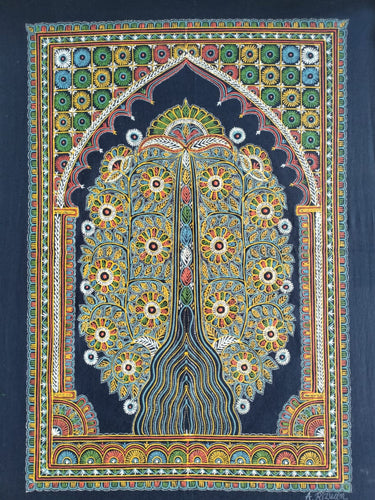 Rogan Art
Rogan Art


Rogan art is a unique and ancient form of textile painting that hails from the Kutch region in Gujarat, India. This traditional craft has a rich history, dating back over 300 years, and has recently gained renewed interest, both in India and internationally.
Rogan art is believed to have Persian origin, practiced by the Muslim Khatri community. The term "Rogan" itself is derived from the Persian word "rog," meaning oil. The craft has been passed down through generations within the Khatri community in the village of Nirona, in the Kutch district.
Rogan art is a painstakingly detailed process. The craft involves boiling castor oil until it thickens, then adding natural pigments to create a vivid, colorful paste. Artisans use a metal stylus, known as a "kalam," to draw intricate designs on fabric, typically cotton or silk. At body temperature, threads of colors are carefully twisted using Kalam, to create designs. Unlike conventional painting, the artisans don’t use pre-drawn patterns; instead, the designs are created freehand, often inspired by nature, folklore, or traditional motifs.
One of the most striking features of Rogan art is its vibrant colors and intricate patterns. Artisans can spend hours or even days on a single piece, carefully layering the colored paste to create a 3D effect. Common motifs include peacocks, trees of life, flowers, and traditional Indian designs like paisleys and mandalas.
For many years, Rogan art was at risk of disappearing. However, thanks to the efforts of the Khatri families in Nirona, the craft has seen a resurgence. In 2014, the Prime Minister of India, Narendra Modi, presented a Rogan art piece to then-U.S. President Barack Obama, bringing international attention to the craft.